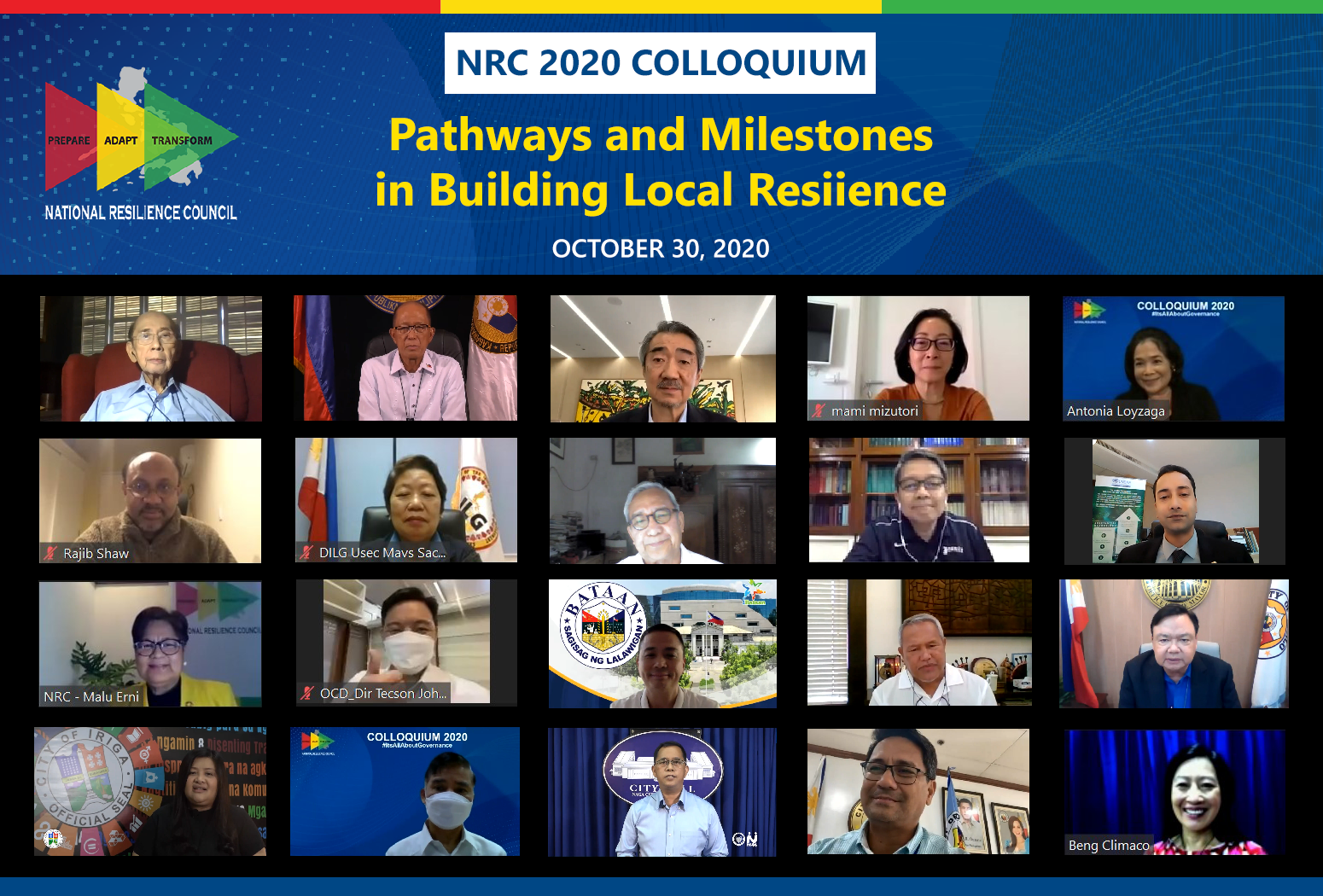Tag: NRC
-

Public and private sectors Strengthen DRR partnerships amid COVID-19 pandemic
Multi-stakeholder resilience approach emphasized at the NRC Colloquium 2020 COVID-19 has added new complexity and uncertainty to public-private partnerships in disaster risk. To counter its cascading impacts, there is an urgent need for evidence-informed local leadership that is reinforced by multi-stakeholder collaboration. In response to COVID-19’s challenges and the year-round threats posed by other hazards,…
-

National Resilience Council COVID-19 Knowledge Series
In April 2020, the National Resilience Council (NRC), in partnership with ARISE Philippines, Zuellig Family Foundation, and the Makati Business Club, launched its 4-part COVID-19 Knowledge Series: Expert Dialogue on Resilience, Public Health, and Human Security. This series aims to provide a platform for informed multi-stakeholder dialogue; bridge global knowledge and expertise with local practice;…
-

The digital challenge
Source: The Philippine Star – Filipino Worldview | Author: Ambassador Roberto R. Romulo | Date: May 29, 2020 Recently, the National Resilience Council (NRC) held its 4th Webinar conference hosted by the Makati Business Club, this time focusing on economic recovery and resilience. The guest speaker was BSP Governor Ben Diokno. DND Secretary Delfin Lorenzana and I…